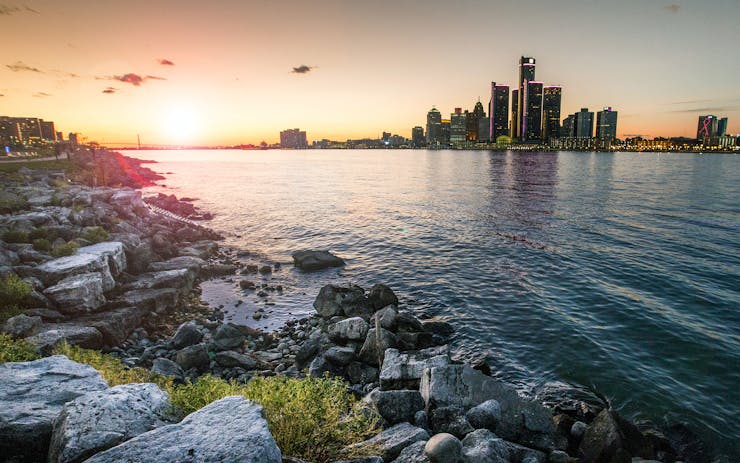Detroit voters will have an opportunity to weigh in on the region’s cannabis industry in November, when newly proposed regulations appear on the local ballot. The changes, which would amend existing medical marijuana rules, include allowing dispensaries to open near liquor stores and expanding cultivation in the city’s industrial areas.
According to the Detroit Free Press, the amendments would:
- Opt Detroit into the Medical Marihuana Facilities Licensing Act and establish standards to regulate caregiver centers through the city’s Building, Safety Engineering and Environmental Department regarding issuance, renewal and revocation. It also removes the jurisdiction of Detroit’s Board of Zoning Appeal.
- Amend the definition of a Drug-Free School Zone to correspond to federal and state law that requires dispensaries to be at least 1,000 feet from schools, colleges and public libraries
- Would allow dispensaries to open within 500 feet of another dispensary. They would also be allowed to open within 500 feet of exempt religious institutions where religious services are conducted regularly. The current ordinance requires facilities to be more than 1,000 feet from churches and other dispensaries.
- Would allow dispensaries to open near liquor, beer/wine stores, child care centers, arcades and parks. The current ordinance does not allow them to be open near any of them.
- Would allow dispensaries to stay open until 9 p.m. Currently, they’re required to close by 8 p.m.
Current zoning restrictions in Detroit have made it difficult for would-be dispensary operators to nail down an appropriate location. One of the proposed changes would help address that obstacle by amending rules in order to allow growers and “secure transporters” to open in the city’s M1-5 industrial districts.
In Detroit, M1, or limited industrial districts are found along major and minor thoroughfares with older, usually vacant buildings. Generally speaking, this district is intended as a buffer between business and residential districts with more intensive industrial uses.
The cannabis advocacy group Citizens for Sensible Cannabis, which circulated petitions for the initiatives, filed a lawsuit last month against the Detroit City Clerk Janice Winfrey and the City of Detroit Election Commission, after officials said a measure to change zoning regulations would not appear on the November ballot, according to the Free Press.
Elections Director Daniel Baxter, however, confirmed to the Free Press on Friday that the two proposals will indeed go before local voters on Nov. 7.





